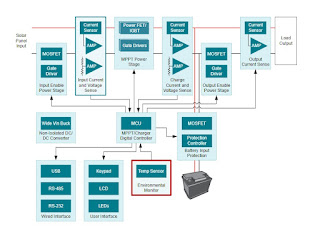US strikes affect chip manufacturers: Texas Instruments, NXP, etc. may be affected
【Lansheng Technology Information】On September 15, due to the failure to negotiate a labor contract, the United Auto Workers launched a historic general strike against the three major automakers Ford Motor, General Motors, and Stellantis. As the strikes become longer and longer, in addition to the three major car manufacturers, automotive chip manufacturers may be significantly affected by this wave of strikes.
According to reports from foreign media such as Yahoo Finance, under the trend of intelligent automobiles, the demand for automotive chips has surged, with each new car equipped with approximately 3,000 chips. Affected by the UAW strike, the stock prices of global automotive chip giants NXP and Texas Instruments fell by 2.62% and 2.07% respectively on the 15th. The stock price of TSMC ADR, which has the largest automotive chip foundry market share, fell by 2.43%.
According to agency data, in terms of revenue scale, NXP's revenue contribution from automotive chips will be as high as 52% in 2022, and Texas Instruments also takes a high proportion of 25%. TSMC’s automotive division accounts for 5% of its total revenue.
Over time, more chipmakers such as Qualcomm and Micron are also expected to be affected, as both companies have large connected car businesses. Qualcomm has doubled down on its automotive efforts in recent years, while Micron is often cited as the leader in the automotive memory chip market.
According to foreign media, the UAW strike may disrupt the production and supply of automotive chips, affecting automakers and technology companies. While supplier diversity will play an important role in mitigating the impact of the strike, the duration and severity of the strike will determine the extent of its impact on the economy and individual companies.
Public information shows that the UAW is one of the largest workers' unions in the United States. Among GM, Ford, and Stellantis groups, the UAW has as many as 146,000 union members, accounting for approximately 56% of all workers in the U.S. auto manufacturing industry.
The reason for the strike is that the labor contracts of about 150,000 American auto workers with the three automakers General Motors, Ford and Stellantis Group have expired, and the labor and management parties have not reached an agreement. This is the first time in more than 80 years since the founding of the United Auto Workers that auto workers have staged a strike against the three automakers mentioned above.
In the new negotiation agreement, the UAW hopes that the three auto companies will provide a 40% salary increase for auto workers; it also requires that all workers be provided with welfare pensions, a 32-hour work week and additional cost-of-living benefits, and the elimination of temporary workers and the tiered wage system, etc. . Top assembly workers, for example, will see their wages rise from the current $32 an hour to $47 an hour. Since it will significantly increase labor costs, the three car companies believe that the union's demands are unrealistic.
The most direct impact of this time is that the three car companies' factories have stopped production, the delivery time of automobile products has been extended, and inventory has been reduced, which will cause damage to automobile sales revenue. Oxford Economics predicts that if the nearly 150,000 unionized workers at the three companies end up going on strike, the move could halt about one-third of U.S. vehicle production, put pressure on the labor market and push up new car prices.
The automobile industry chain is long, and the strike will have a chain reaction on the supply chain. The U.S. automotive industry's supply chain is complex and extensive, including hundreds of suppliers and manufacturers. The strike will disrupt the supply chain and cause significant disruption to parts supply and vehicle production. Jeff Schuster, head of global automotive business at consulting firm GlobalData, said that a strike at one engine or transmission plant of each car company would be enough to shut down nearly three-quarters of U.S. assembly plants.
Lansheng Technology Limited, which is a spot stock distributor of many well-known brands, we have price advantage of the first-hand spot channel, and have technical supports.
Our main brands: STMicroelectronics, Toshiba, Microchip, Vishay, Marvell, ON Semiconductor, AOS, DIODES, Murata, Samsung, Hyundai/Hynix, Xilinx, Micron, Infinone, Texas Instruments, ADI, Maxim Integrated, NXP, etc
To learn more about our products, services, and capabilities, please visit our website at http://www.lanshengic.com



Comments
Post a Comment